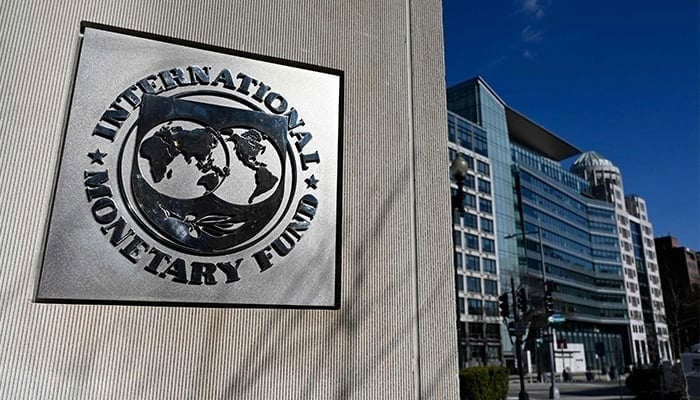News Analysis: Reform now to break IMF cycle
As new government takes shape, first order of business is to accelerate closure of fresh IMF programme
PAKISTAN is emerging from yet another lost decade, where growth lagged behind peers, and whatever growth existed was largely driven by debt-fueled consumption-oriented growth. As the world moves beyond a decade of close to zero interest rates in the US, economies relying on debt to finance their growth were out of options to fund growth.
As a new government takes shape, the first order of business is to accelerate the closure of a fresh IMF programme. The availability of financing from the IMF will not just provide precious foreign currency liquidity to enable macroeconomic stability but also provide confidence to other multilateral and bilateral lenders.
There are plans to go for a bigger IMF programme, much more than the existing quota. Any such programme would be linked with strenuous reform targets. Reverting to a debt-funded economic boom to garner support for the next political crisis may eventually derail any such IMF programme. A bigger programme in this case would mean an even harsher fall.
Policymakers, old and new (mostly old), must demonstrate their ability to undertake reforms before a bigger programme is unleashed on the country to further rack up debt. The existing lot of policymakers have been at the helm for at least one of the last three decades. There is sufficient anecdotal and empirical evidence available that their willingness and ability to undertake reforms remains abysmally low. The new finance minister may have the best interests at heart, but the coterie of ancient policymakers does not provide an iota of hope.
In the interim, we may see Pakistan closing the programme, meeting tax revenue targets by further increasing taxes on an already narrow tax base, increasing electricity prices without considering its detrimental impact, and making cosmetic changes as and where required. There is little hope that any serious reforms will be done that reduce the size of the informal economy, remove anti-export bias, eliminate the losses of state-owned enterprises, and expand the tax net.
There is a strong need to reform electricity distribution companies and eliminate more than a trillion rupees of losses. There is also a strong need to accelerate the privatization of PIA and reduce its burden on the national exchequer. Expanding the tax net to increase the tax-to-GDP ratio remains critical since that is the only way to reduce the fiscal deficit and reduce the reliance of the sovereign on debt to fund its growth. Moreover, there is a dire need to catalyze industrialization, something that is simply not possible within the existing energy framework, which actually penalizes efficient utilization of energy and incentivizes wastage.
The problems require a multi-pronged solution and go beyond the IMF programme which is a stop-gap arrangement that allows the government to have some sort of macroeconomic stability. The government regardless needs to retool the economy for broad-based growth for the people of the country. Governing the country from one IMF programme to another is not a sound strategy for almost a quarter billion people.
The willingness or even a plan to reform doesn’t seem to be there. The history of the relationship between Pakistan and the IMF is more than fifty years old, with almost two dozen programmes. We may add yet another failed programme to this tally if the willingness to reform remains absent.
-
 Real Reason Prince William, Kate Broke Silence On Andrew Scandal Revealed
Real Reason Prince William, Kate Broke Silence On Andrew Scandal Revealed -
 Drew Barrymore Responds To 'Charlie's Angels' Costar's Comments About Her
Drew Barrymore Responds To 'Charlie's Angels' Costar's Comments About Her -
 Shakira Slips Hard On Stage During Life Show
Shakira Slips Hard On Stage During Life Show -
 King Charles Speaks Out Over Andrew's Scandal: 'Stand Ready To Help Police'
King Charles Speaks Out Over Andrew's Scandal: 'Stand Ready To Help Police' -
 Dax Shepard Recalls Horrifying Accident That Almost Killed Him
Dax Shepard Recalls Horrifying Accident That Almost Killed Him -
 Logan Paul's Bodyguard Hits Fan On Super Bowl Day
Logan Paul's Bodyguard Hits Fan On Super Bowl Day -
 Epstein Files: Anne Hathaway Mentioned As Highly Desired Guest For Bill Gates?
Epstein Files: Anne Hathaway Mentioned As Highly Desired Guest For Bill Gates? -
 Prince Harry Under A Lot Of Stress As Meghan Markle Makes Bizarre Demands
Prince Harry Under A Lot Of Stress As Meghan Markle Makes Bizarre Demands -
 Princess Beatrice, Eugenie's Subtle Break From Disgraced Parents Exposed
Princess Beatrice, Eugenie's Subtle Break From Disgraced Parents Exposed -
 Baby Left In Running Bathtub Dies After Father ‘forgets’ Him
Baby Left In Running Bathtub Dies After Father ‘forgets’ Him -
 King Charles Takes A Major Step To Keep Horrified Prince William Out Of The Loop On Andrew: Insider
King Charles Takes A Major Step To Keep Horrified Prince William Out Of The Loop On Andrew: Insider -
 Taylor Swift Set To Make Biggest Cut From Her Wedding Guest: Blake Lively Or Ryan Reynolds
Taylor Swift Set To Make Biggest Cut From Her Wedding Guest: Blake Lively Or Ryan Reynolds -
 Prince William Meets Saudi Crown Prince Mohammed Bin Salman
Prince William Meets Saudi Crown Prince Mohammed Bin Salman -
 Brooklyn Beckham Brutally Cuts Off Inner Circle Amid Feud With David, Victoria
Brooklyn Beckham Brutally Cuts Off Inner Circle Amid Feud With David, Victoria -
 Kaley Cuoco Reveals Why Fiance Tom Pelphrey Sleeps In Seperate Room
Kaley Cuoco Reveals Why Fiance Tom Pelphrey Sleeps In Seperate Room -
 Ghislaine Maxwell Will Not Answer Congress Questions On Epstein
Ghislaine Maxwell Will Not Answer Congress Questions On Epstein




